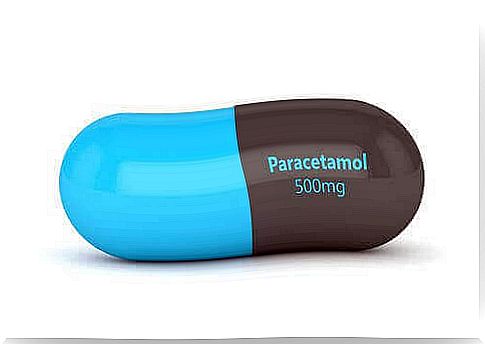Paracetamol During Pregnancy – Is It Safe?

Taking paracetamol during pregnancy is a topic on which there has been a lot of controversy, and there are many conflicting opinions about it.
You may not be aware of it, but paracetamol is one of the best-selling over-the-counter medications in the world. The problem is that people are often unaware of the harmful effects and contraindications.
Until recently, the recommendations for the use of paracetamol during pregnancy indicated that it was dangerous to use. Based on clinical experience, however, there is no evidence that there is a link between the use of the drug and the impact on the urogenital system. There is also no evidence regarding changes in the child’s neurological development.
Paracetamol during pregnancy: Use and effects
This medicine is widely used for its analgesic and antipyretic properties. Thus, it reduces pain and fever. It is quite similar to aspirin except that it does not reduce inflammation or exert an antiplatelet effect.
Because of these properties, people use paracetamol to reduce moderate, acute and chronic pain. It is the choice for painkillers that most doctors recommend when it comes to patients over 50 years of age.
No one knows exactly how paracetamol works, but we do know that it works centrally. There is a widely accepted hypothesis in the scientific community that paracetamol increases the pain threshold by inhibiting the enzyme cyclooxygenase. These are the molecules that participate in the synthesis of prostaglandins.
Prostaglandins are proteins that are related to pain. However, paracetamol is not able to inhibit cyclooxygenase at a peripheral level – outside the central nervous system. For this reason, it has no anti-inflammatory properties.
In addition, paracetamol also inhibits the synthesis and effect of various chemical mediators that sensitize pain receptors to mechanical or chemical stimuli.
In terms of the effectiveness in reducing fever symptoms, paracetamol is able to block the area of the brain that controls body temperature. Therefore, it manages to dissipate heat by triggering vasodilation and increasing peripheral blood flow and sweating.

Side effects of paracetamol
Paracetamol is hepatotoxic (toxic to the liver). However, this toxicity is the result of either an overdose or a chronic overdose in most cases. Paracetamol-induced hepatotoxicity manifests itself as follows:
- The disease liver necrosis
- Jaundice, which is a yellow discoloration of the skin and mucous membranes
- Blood in the stool or bruises on the skin
- Encephalopathy
In addition to this toxicity, it can also cause other side effects, such as the following:
- Neutropenia (decreased white blood cell count)
- Urticaria and other allergic reactions
Recommendations for the use of paracetamol during pregnancy

The Spanish Ministry of Health recently amended the recommendations for the use of paracetamol during pregnancy. When a company markets a drug, it must conduct a series of observational studies to assess its long-term safety. This is also to detect hazards that have not yet been assessed in the previous phases of the study.
During this periodic evaluation of paracetamol at the pharmacovigilance departments, they have also investigated more about the danger it poses to the fetus in all pregnant women taking paracetamol.
All the new safety data for this medicine that have been generated through observational studies are now in the technical data sheet. They are also listed in the medical package leaflets that contain this active ingredient.
As you can see, the Spanish Agency for Medicines and Medical Devices has a solid basis for making a judgment. After conducting all the corresponding assessments, they concluded that there is no evidence to suggest that prenatal use of paracetamol has any effect on the urogenital system or leads to disturbances in the neurodevelopment of a child.
Conclusion
In short , a pregnant woman can take paracetamol under the supervision of a doctor and as long as they do not abuse it. Pregnant women must be careful when using medication and avoid self-medication under any circumstances.
If in doubt, always follow your doctor’s advice.









